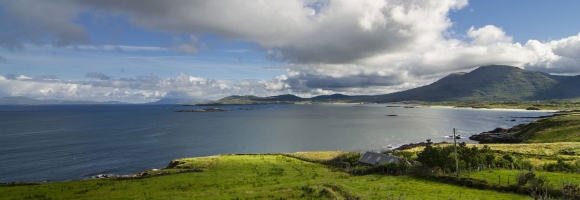How To Use LPG Hoses
Identification and correct us of cylinder regulators and hoses
This section is concerned with the identification and correct use of cylinder regulators and their hoses. Regulators are used to reduce the pressure of gas in the cylinder to a lower pressure that is more suitable for the appliance and to keep the pressure fixed (within limits) at that value. For other hose types, refer to Guidelines on using LPG hoses.
Pressure and Gas Type
The two LPGes, Butane and Propane, are very similar, and consequently many domestic appliances (e.g. most domestic cookers) are designed to run on either gas, but the standard supply pressure is somewhat different for each gas to accommodate the differences in the characteristics of the two gases. In the case of Butane, the standard supply pressure is 28 mbar (11" water gauge) and for Propane it is 37 mbar (14" water gauge) - regulators that supply either of these pressures are called "low pressure regulators". The appliance itself will have a badge on it identifying what gas and what pressure it is designed for. There are some appliances (not many) designed to work on considerably higher pressures and these use "high pressure regulators", and again these are clearly marked with what gas and what pressure they are designed for.
DO NOT USE HIGH PRESSURE REGULATORS ON LOW PRESSURE APPLIANCES: THIS CAN LEAD TO A DANGEROUS SITUATION AND YOU MAY DAMAGE THE APPLIANCE.Cylinders and Hoses
Each regulator is designed to fit a specific type of cylinder valve and a regulator that fits one type of valve will not fit any of the others. The valve on Propane cylinders has a screw thread and only accommodates Propane regulators.
Butane is supplied by Flogas under two brands, Flogas and Ergas. The Flogas Butane cylinders are yellow and always use a "Jumbo" valve. There are two types of Ergas Butane cylinders: the orange ones have the same "Jumbo" valve as the Flogas cylinders, but the blue/green cylinders have a much narrower "Compact" valve.
High-pressure regulators have a much narrower nozzle than that fitted to low-pressure regulators and use a much narrower hose (see picture below).
DO NOT TRY TO FORCE A HIGH-PRESSURE HOSE ONTO A LOW-PRESSURE NOZZLE: YOU WILL SNAP THE BRAIDING INSIDE THE HOSE AND THE HOSE MAY SUBSEQUENTLY CRACK AND LEAK, RESULTING IN A POTENTIALLY DANGEROUS SITUATION. Always match the hose size to the nozzle size and only use hose designed for LPG and to the correct standard.Regulators and Their Identification
Butane Jumbo Low Pressure Regulator
This is the standard regulator for Flogas Butane cylinders and Ergas Jumbo Butane cylinders (i.e. designed to fit Jumbo Butane valves), and regulates the pressure to the standard 28 mbar, which is the pressure required by most appliances designed to run on Butane.
Stock code 420
Butane Jumbo High Pressure Adjustable Regulator
This is a high-pressure adjustable regulator for use with certain appliances / equipment, such as hand torches, cow dehorning units, and some "crow bangers". The outlet pressure is adjustable, but it's minimum setting is still very high (e.g. 500 mbar).
Stock code 1341
Butane Compact Low Pressure Regulator
This is the standard regulator for Ergas Compact Butane cylinders (i.e. designed to fit Compact Butane valves), and regulates the pressure to the standard 28 mbar, which is the pressure required by most appliances designed to run on Butane.
Stock code 421
Propane Low Pressure Regulator
This is for use on propane cylinders, and regulates the pressure to the standard 37 mbar, which is the pressure required by most appliances designed to run on Propane.
Stock code 1321
Propane High Pressure Adjustable Regulator
This is for use on Propane cylinders, for use with certain appliances / equipment, such as hand torches, cow dehorning units, and some "crow bangers". The outlet pressure is adjustable, but it's minimum setting is still very high (e.g. 500 mbar).
Stock code 1344
Hoses and Hose Clips
These are two types of cylinder regulator hose in use by Flogas: (a) the smaller-diameter high-pressure hose (on the left in the picture) is for use with high-pressure regulators, and (b) the larger diameter for low-pressure regulators. Always ensure the hose size is suitable for the nozzle you are using. Use a high-pressure hose with a high pressure regulator. Do not use a high-pressure hose with a low-pressure Propane regulator.
Stock codes: low pressure hose 1370, low pressure hose clips 1376, high pressure hose 1373, high pressure hose clips 1375.

